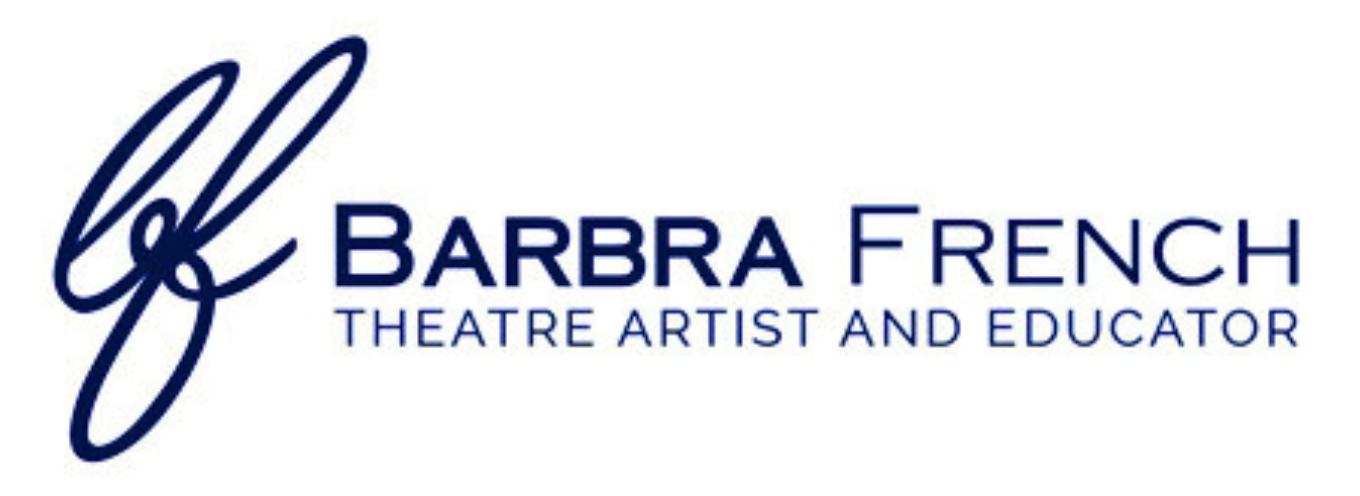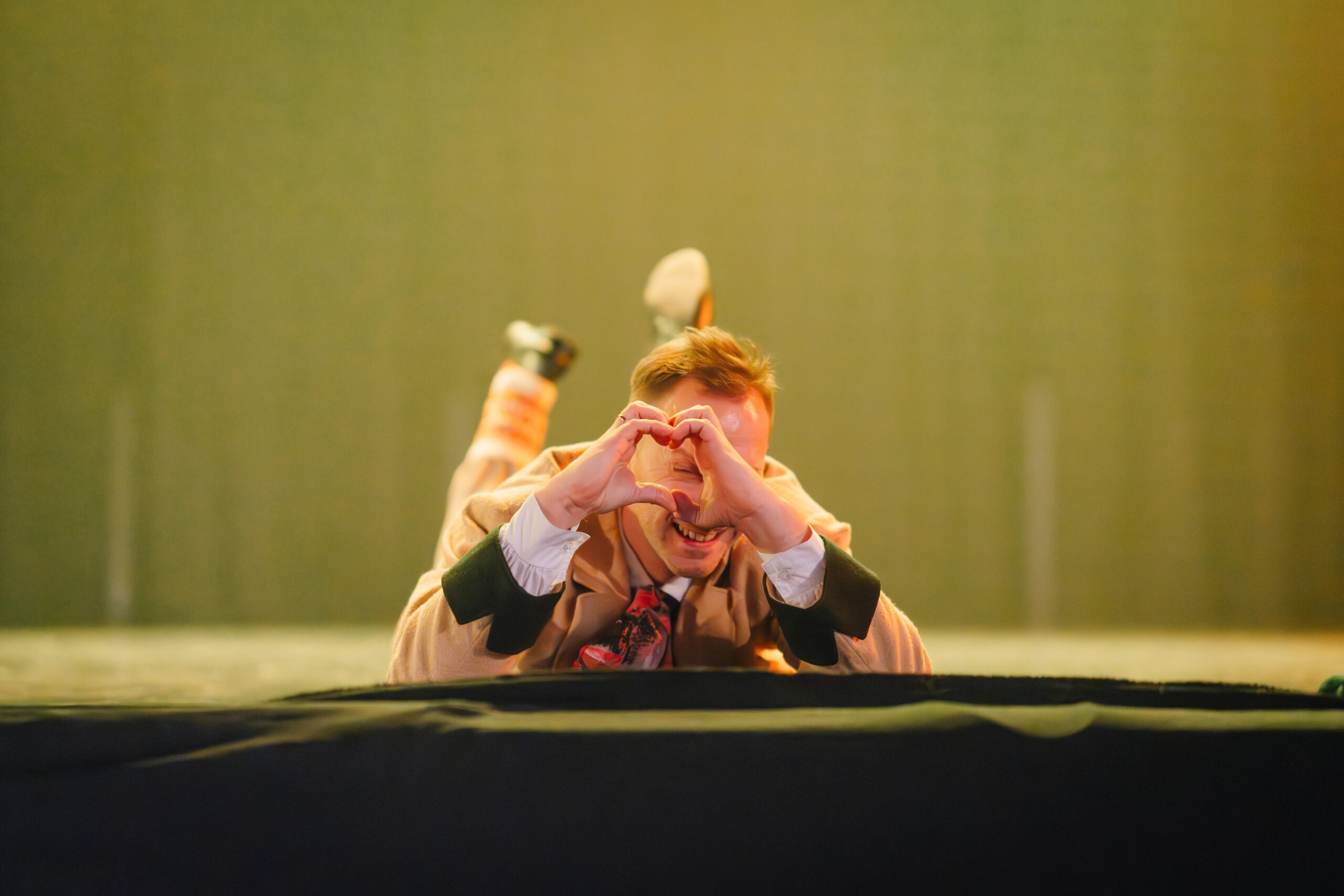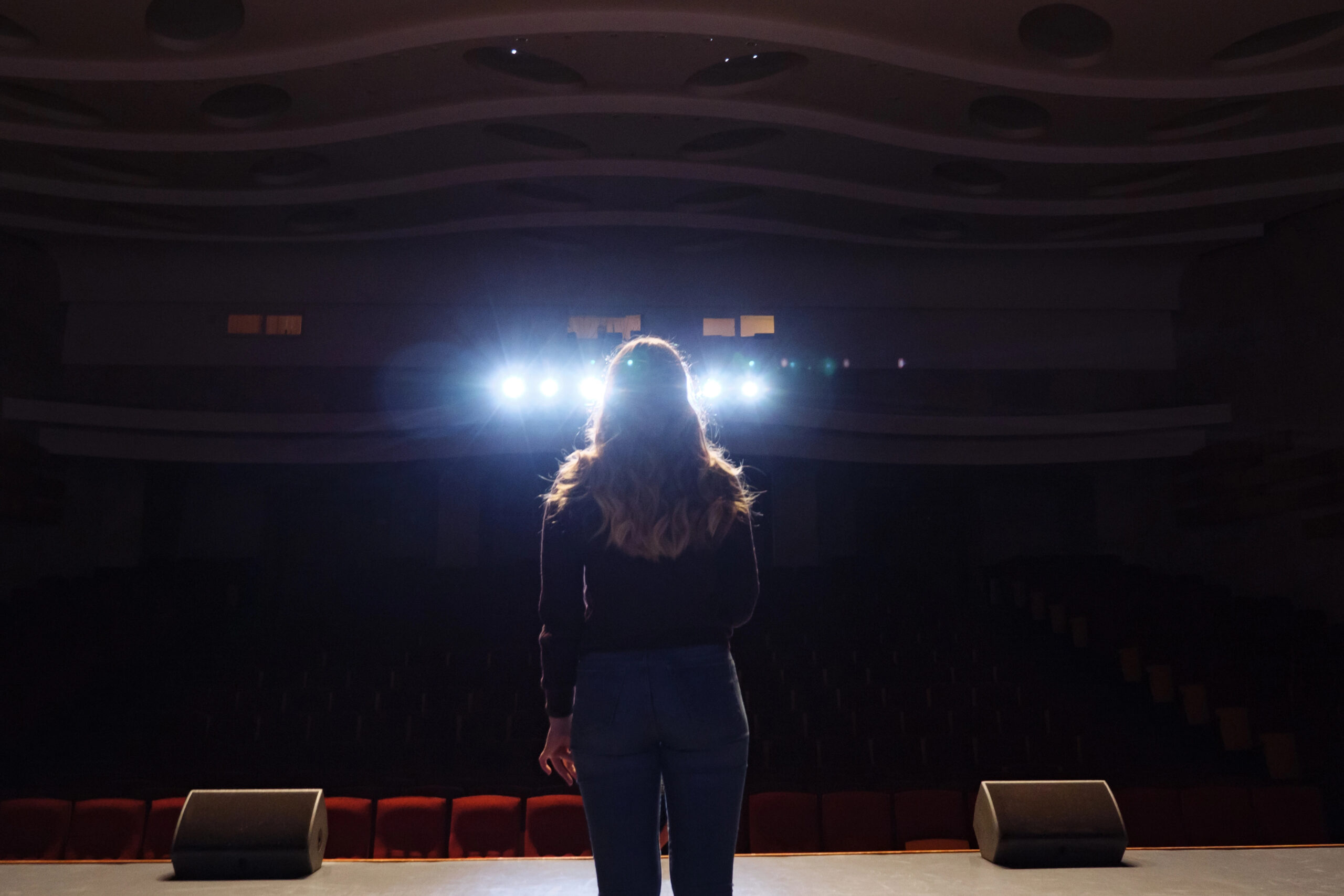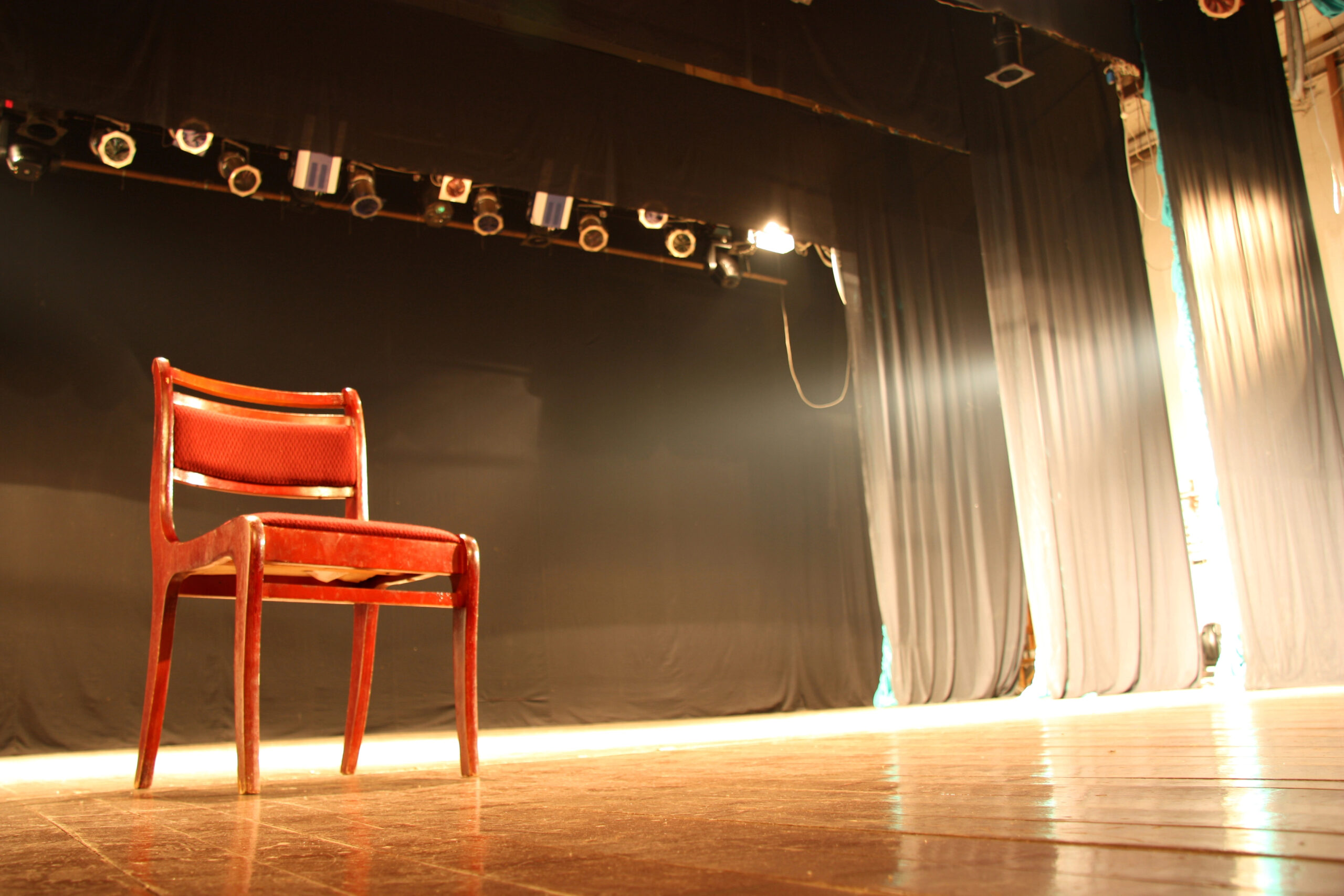We’ve all talked about it, often complained about it: that mysterious, indescribable quality of chemistry on stage. Audience members will say, “There wasn’t any chemistry between the leads!” Or worse, actors will decry, “I don’t think my scene partner and I have any chemistry, and this is a love story!” Yikes.
But what exactly are we talking about when refer to “chemistry’? Does it only apply to onstage romances? And how do we create it with the people we work with (and may hardly know at all)? Let’s drill down on this intangible, magical connection.
What Exactly IS Chemistry on Stage?
When it comes to acting, “chemistry” refers to the powerful connection between two performers. This can be the magnetic pull between romantic partners, of course, but it also can be the life and death rivalry between hero and villain, or the heartfelt, hilarious banter between best friends. The chemistry between two actors can greatly enhance the authenticity and emotional impact of their relationship. It is dynamic, powerful, and ensures the audience is laser-focused on the pair whenever they come together on stage. We simply can’t take our eyes off them—the clever word play, the look across a crowded room, the murderous barbs, the gesture that says it all—and we stay at the edge of our seats, waiting for their story to unfold. For actors, creating this electricity with a scene partner is some of the most enjoyable moments of the job. But the question is: how does one create it?
Part of this simply comes down to a natural rapport and energy that can happen between two people when they really click. We’ve all felt that kind of “known you for my whole life and we just life” experience. When this happens in a cast, it’s a gift. But what if it doesn’t? What if you are cast as new lovers, and you really don’t feel that way at all? I can recall seeing a professional production of the Pulitzer Prize winning play, Proof, and I believe I actually left at the intermission because there was no chemistry at all between Catherine and Hal. Without it, the play became more of an intellectual exercise, and the story suffered greatly. What could these two actors—who obviously didn’t feel attracted to each other—have done?
Trust
This may sound like it goes without saying, but if actors don’t trust one another, it will likely show up on stage. This can be a difficult hurdle if they have a history of mistrust with each other. In that case, the pair needs to recognize the problem and find a way to forgive one another, or at least agree to be professional enough to put aside their grievances when on stage. There are exercises that can help, of course, and a smart director will set aside time to work on their real-life relationship.
But no matter what the history, actors benefit from spending extra time rehearsing closely with each other, by having some physical contact (lovers), sitting together on a couch or at a table (best friends), or even doing a competitive activity (advisories). Working closely together on a shared goal (a great scene) would be the first step towards a more trusting relationship.
Sharing time outside of rehearsal—doing things both enjoy in the ‘real’ world—would be a good second step. The more actors get to know each other and have fun together, the better. Try going for a walk through the woods, visiting a favourite café Sundays, or hitting a karaoke bar. Definitely run lines with each other on your off hours. You never know; you might find that your common interests can become the basis for a good friendship.
In addition, there are lots of warm up exercises that can help connect people and get them focused on each other, like a simple Mirror Game or story telling/building exercises. Doing one or two before each rehearsal can be a great way of getting to know how each actor works and building trust together.
(Really) Listening
Listening may be becoming a lost art in the world, but it’s an essential skill on the stage. Actors can work with improv games to start tuning into each other; I can’t think of a better way to encourage active listening, frankly. Word-based improv games are good for a start, and then actors can move on to more visual and physical games to help them pay attention to the small clues their partners are giving them. Meisner exercises are another excellent avenue to explore to sharpen listening skills. Even the seemingly simple act of repeating what your partner has just said before you say your line can be quite powerful. Give it a try.
Sharing Character Stories
I like to get actors together and have them create a shared back story with key moments (for characters with some history), or introduce themselves as if they were at a wedding with assigned seating (for characters who have just met). Sharing the important moments of your character with your partner can get them interested, more invested in you. Once you’ve shared some moments or information, you can switch to listening while your partner does the same. Empathizing and asking a few questions will help keep the stories rolling. NOTE: be careful not to create stories that would work against the play or the playwright’s vision of the characters and relationship. Doing this exercise with your director present would be a good idea.
Explore the Physical
Don’t underestimate the power of gestures, physical contact, blocking and eye contact. These can convey intimacy, tension, or camaraderie, enhancing the relationship between the characters and moving the story forward. Physical objects such as props and costumes can also help your character engage your scene partner; use them to make a point, explain a story, or create a metaphor that can create understanding and drive a point home.
Sharing Objectives
Something quite magical happens when actors share their objectives. This can happen in several ways, some found directly in the script and others in rehearsal, for example,
-characters can share the same objective and fight for it together (best friends),
-characters can secretly have the same objective and desire (potential lovers),
-characters can share the same objective but from the opposite side (hero and villain),
-all characters (minus the villain) can share a unified objective and all fight for it together, and
-characters can share their objective with each other in rehearsal, as an exercise for understanding.
Chemistry can be built in all of these scenarios, either by finding common ground or by reaching an understanding of a character’s battle for what they want. Stakes can be used, too, to create a more cohesive, unified performance (attn: directors).
In the end, chemistry comes from trust, connection, empathy, common ground, competition, and desire. It’s built both on and off stage, from building trust, focus, listening, sharing, fighting for what you want authentically, and good storytelling practices. The rapport and energy helps make performances engaging, genuine, compelling and electric. And that is what we’re all after, right actors?






0 Comments